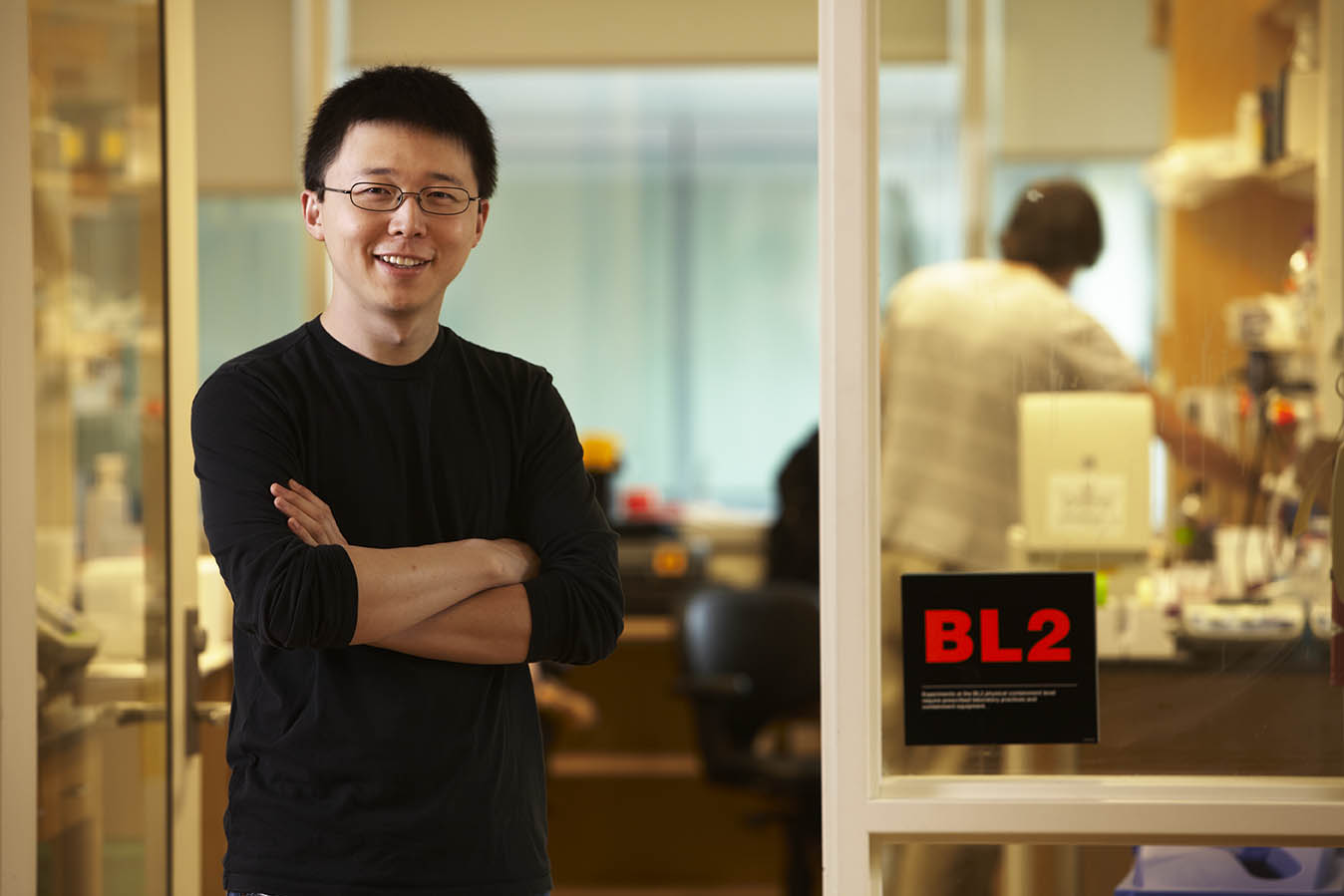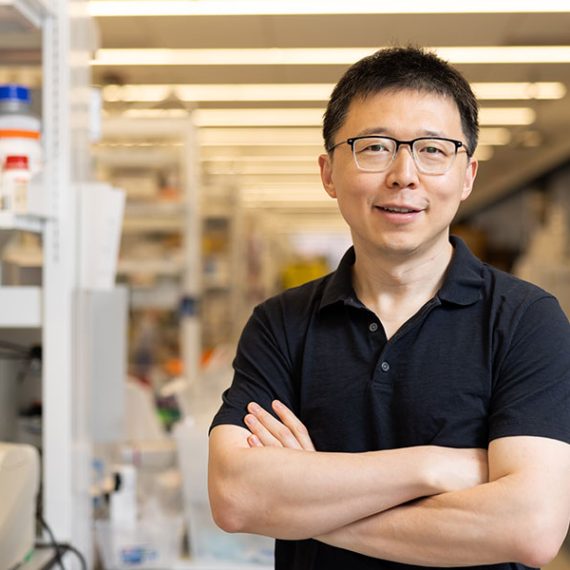Feng Zhang wins NSF’s Alan T. Waterman Award
Waterman Award is NSF's highest honor recognizing an outstanding researcher under the age of 35.

The National Science Foundation (NSF) named Feng Zhang the 2014 recipient of its Alan T. Waterman Award. This award is NSF’s highest honor that annually recognizes an outstanding researcher under the age of 35 and funds his or her research in any field of science or engineering. Zhang’s research focuses on understanding how the brain works.
“It is a great pleasure to honor Feng Zhang with this award for his young, impressive career,” said NSF Director France Córdova. “It is exciting to support his continued fundamental research, which is certain to impact the field of brain research. Imagine a future free of schizophrenia, autism and other brain disorders that wreak havoc on individuals, families and society. Feng’s research moves us in that direction.”
Zhang seeks to understand the molecular machinery of brain cells through the development and application of innovative technologies. He created and is continuing to perfect tools that afford researchers precise control over biological activities occurring inside the cell. With these tools, researchers can deepen their understanding of how the genome works, and how it influences the development and function of the brain. Zhang also examines failures within the systems that cause disease.
Two different lines of fundamental research and technology development are helping him do that: optogenetics and genome engineering. With Edward Boyden and Karl Deisseroth at Stanford University, he developed optogenetics to study brain circuits, a technique in which light is used to affect signaling and gene expression of neurons involved in complex behaviors. Zhang also developed the CRISPR system to enable new, cheaper, more effective ways to “edit” animal genomes–that is, to identify and cut a short DNA sequence underlying a disorder so that it may be deleted or substituted out for other genetic material. Although Zhang’s main area of focus is the brain, the potential applications of CRISPR technology extend well beyond neuroscience.
“This is an immensely exciting time for the field because of the tremendous potential of tools like CRISPR, which allows us to modify the genomes of mammalian cells,” Zhang said. “One of my long-term goals is to better understand the molecular mechanisms of brain function and identify new ways to treat devastating neurological disorders.”
Since high school, Zhang has devoted his time, energy and intellectual prowess to developing ways to study and repair the nervous system. Today, he is one of 11 core faculty members at the Broad Institute of MIT and Harvard; an investigator at MIT’s McGovern Institute for Brain Research; and the W. M. Keck Career Development Professor with a joint appointment in MIT’s Departments of Brain and Cognitive Sciences and Biological Engineering.
Zhang is widely recognized for his pioneering work in optogenetics and genome editing. He shared the Perl/UNC Neuroscience Prize with Karl Deisseroth and Edward Boyden in 2012. In 2013, MIT Technology Review recognized him as a “pioneer” and one of its 35 Innovators Under 35; Popular Science magazine placed Zhang on its Brilliant 10, an annual list of the most promising scientific innovators. Nature also named him as one of the “ten people who mattered” in 2013 for his work on developing the CRISPR system for genome editing in mammalian cells.
The Waterman award will be presented to Zhang at an evening ceremony at the U.S. Department of State in Washington, D.C., on May 6. At that event, the National Science Board will also present its 2014 Vannevar Bush award to mathematician Richard Tapia and Public Service awards to bioethicist Arthur Caplan and to the AAAS Science & Technology Policy Fellowships Program.
Plans are underway for Zhang to deliver a lecture at a meeting of the National Science Board at NSF and to meet with students at Thomas Jefferson High School for Science and Technology during his visit this spring.




